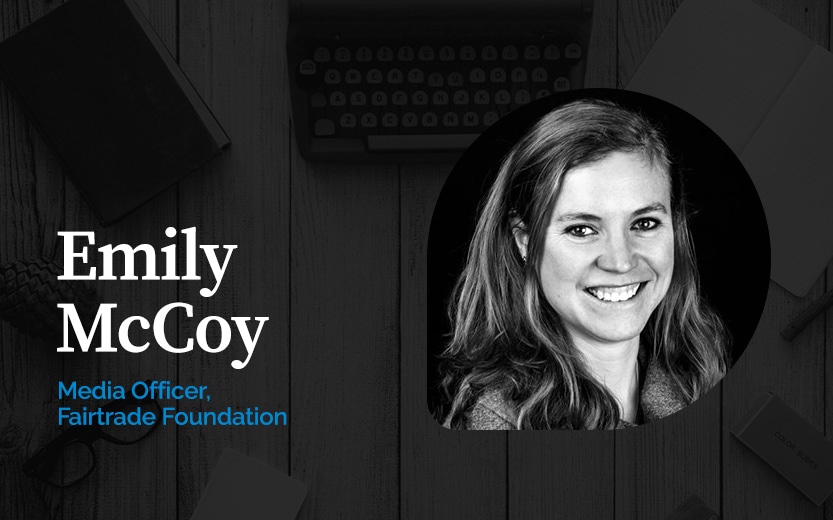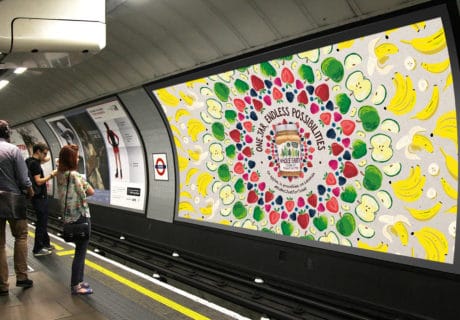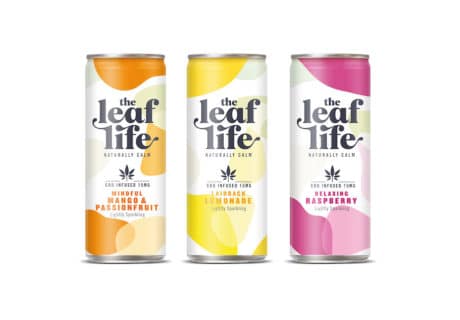Emily McCoy looks back on 25 years of Fairtrade.
“If exploitation left its mark on your food, would you still buy it?”
It probably rarely occurs to us that as we enjoy our daily cup of tea that most workers on large tea estates in India are trapped in vicious cycles of poverty. Or when we take a quick break to enjoy a bar of chocolate, that it might have been grown by cocoa farmers for whom a living income is just a pipe dream. We rely on our mobile phones more than ever before but many of the components needed to run it are made with minerals mined in appalling conditions around the world.
The exploitation that lies beneath the products we depend on may seem like an insurmountable injustice so entrenched in our society, and it is hard to know what to do to make a difference. But you are not alone, and we are already well on the road to even better change and a fairer world – there is no other option.
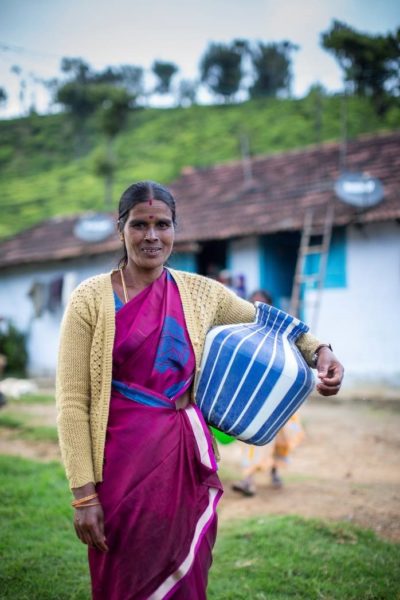
It is because of the commitment to this principle – from campaigners, businesses and individuals around the world – that Fairtrade is celebrating 25 years of the marque this October. Fairtrade was established by a group of people and organizations responding to historically low prices in coffee trading at the expense of the farmer; 25 years later, thanks to the growth of a movement of thousands in the UK and even more internationally, over 1.6 million farmers and workers’ lives have been changed because of Fairtrade.
Sadly we have to keep fighting, for today poverty and inequality are still rife in supply chains. At the root of many of today’s big issues – migration, the climate crisis, deforestation, soil degradation, to name just a few – are people trying everything to earn a living income, enough to feed their family, send their children to school and create and care for a home in their own environment. To make effective and sustained change, we have to look back to the start.
One by one
All good movements for change start with just one step. In 1994 the first products bearing the Fairtrade marque went on sale in shops in the UK. That marque was proudly displayed by Clipper Tea, Cafédirect, Percol Coffee and Green & Blacks. Fast forward 25 years and there are now over 5,000 products on sale here under Fairtrade’s stamp of approval.
If exploitation left its mark on your food, would you still buy it?
Just like the first marque, the first farmers are testament to the difference we can make on an individual level. Sannamma has been working at Dunsandle, one of the oldest tea estates in the Nilgiri Hills of India, for 25 years – the entire time it has been supplying Clipper with Fairtrade tea. She is 45 years old and has two children in their twenties who have both gained an education at the onsite school, supported by the Fairtrade Premium, which has also invested in bursaries for students and facilities such as a kitchen to provide the children with free hot meals at lunchtime.
Sannamma says: “All these things we get are the benefits from Fairtrade that have brought changes into our lives. Working so hard, plucking our tea, at least through Fairtrade we can get something back for ourselves.”
From few to many
To change one’s mind isn’t easy. To change the minds of thousands needs a step change, a groundswell of support from all areas. For many coffee farmers in Columbia, however, changing to Fairtrade is an easy choice. Asprocafe Ingruma’s farmers have been supplying Percol with Fairtrade coffee for 25 years. The co-operative supports 1,400 indigenous families who benefit from social projects such as construction of housing, environmental biodiversity projects and economic diversification training for local women. That’s why it and other similar cooperatives are growing, and they’ve looking for similar support down the supply chain.
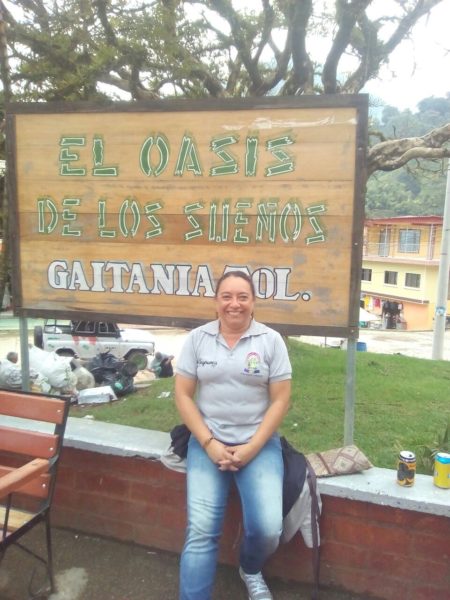
Back in the UK price, taste, availability, ecological impact are all big factors in the process of getting the best coffee in your mug. But more importantly for us in the movement, choosing Fairtrade gives consumers a simple option when it comes to making the best choice for the people at the end of the supply chain.
From one to many, we can make changes to the injustice in the world, and we must continue to try. In October the Fairtrade Foundation looks to the next 25 years, calling on people from throughout the supply chain and throughout the movement to look ahead, join the celebration for how far we’ve come and how far we can go, if we work together.


